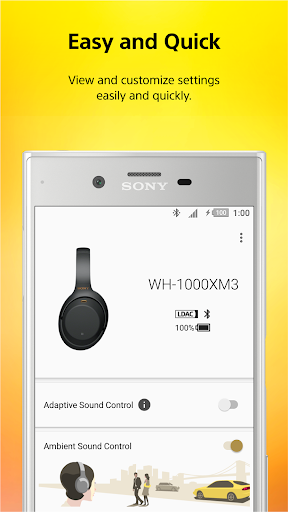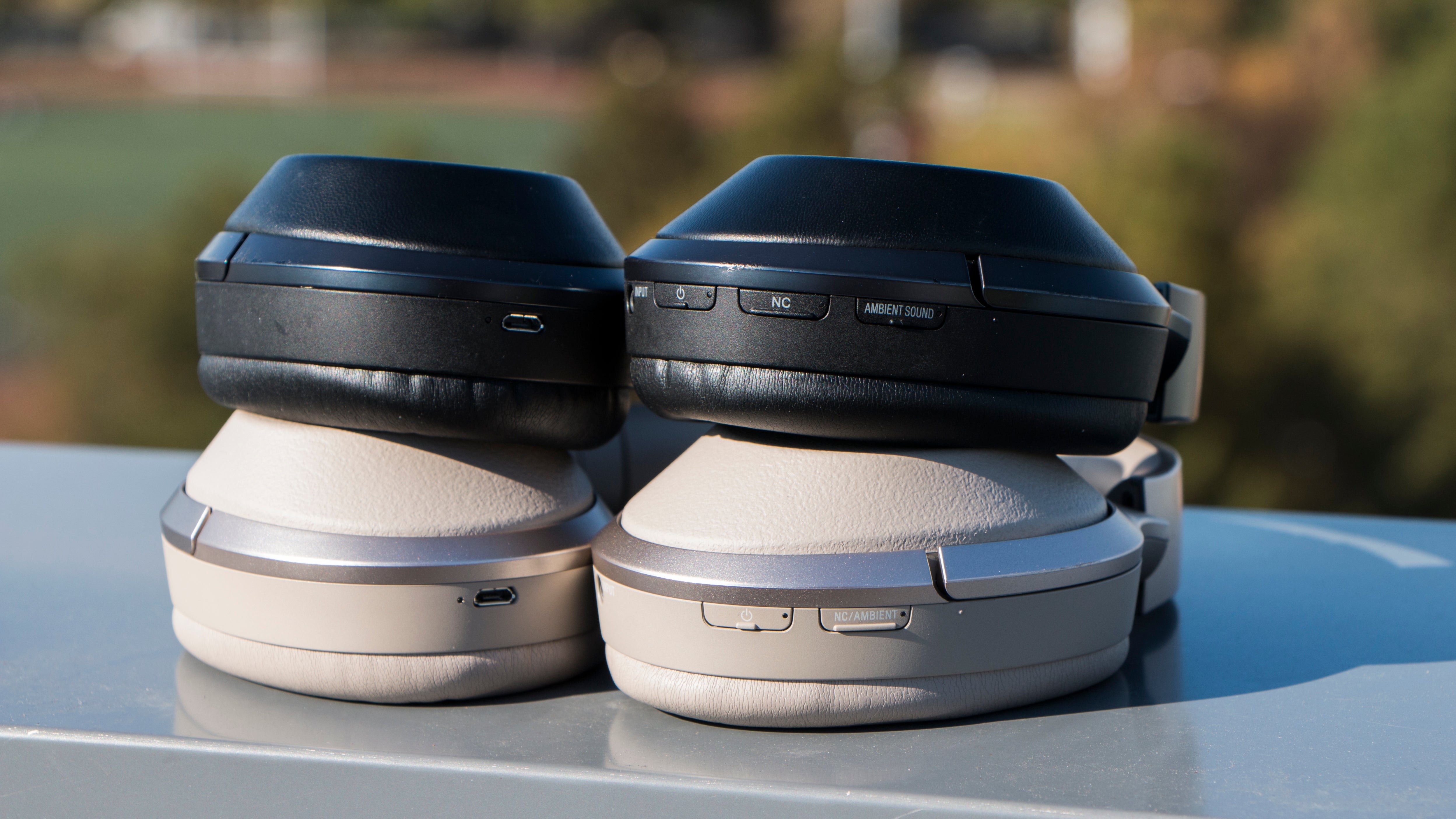Find Sony WH-1000XM2 prices and learn where to buy. CNET brings you pricing information for retailers, as well as reviews, ratings, specs and more.
Sony WH-1000XM3
We review products independently, but we may earn affiliate commissions from buying links on this page. Terms of use.
Buy It Now
| Amazon UK | £259 |
Pros
- Excellent audio performance with superb bass depth and high-frequency clarity.
- High-quality noise cancellation.
- App includes adjustable EQ and ANC controls.
- Plush, comfortable fit.
Cons
- Expensive.
- ANC affects sound signature slightly.
- Cable lacks inline remote.
Bottom Line
Sony's WH-1000XM3 headphones feature some of the best audio performance we've heard paired from a pair that also boasts excellent noise cancellation.
In recent years, Sony has been one of the few serious contenders to dethrone Bose as the top manufacturer of noise-cancelling Bluetooth headphones. In terms of audio performance, its new $349.99 WH-1000XM3 headphones come out on top, with drivers that deliver excellent bass depth and high-frequency clarity, with in-app EQ to dial in your preferences if the sound signature is a bit too bass-heavy or bright for your taste. The ANC (active noise cancellation) is also fantastic, though Bose still has a slight edge there. Ultimately, the Sony WH-1000XM3 headphones are for those who place audio performance on a higher pedestal than noise cancellation—but still want excellent examples of both—and earn our Editors' Choice alongside the QuietComfort 35 II.
Design
Available in beige or black, the circumaural (over-ear) WH-1000XM3 headphones are, from a physical perspective, all about comfort and less about style. The materials used and the matte finishes look clean and project an air of understated luxury, but the real focus here is on how the headphones feel—and they feel lightweight, amply padded in the headband and earcups with memory foam, and exceptionally comfortable over long listening periods. The earcups actually do an excellent job of blocking out ambient noise passively.
The left earcup's outer panel is an NFC pairing zone for compatible phones, and the right ear's outer panel houses an array of touch-sensitive controls. There are no visible demarcations for the controls, but the layout is relatively intuitive—swipe forward or backward for track navigation, up or down for volume control, and tap the center for play/pause/call management, or hold your finger in place to summon voice assistance.
Inside each earcup, Sony employs a 1.6-inch neodymium dynamic driver, delivering a frequency range of 4Hz-40kHz. We'll give Sony the benefit of the doubt here, but that's quite an upgrade over the more typical frequency range of roughly 20Hz-20kHz.

The headphones can be used in Bluetooth mode or wired, but unlike many wireless headphones that include a cable connection, plugging the audio cable in doesn't disable power. This a good thing in the sense that you can use the noise cancellation circuitry even in wired mode, but less good if you don't realize you are using the ANC and draining the battery when you connected the cable to preserve battery life. Luckily, the headphones can be used in wired, passive mode—just make sure the ANC is off. One more note: The cable has no inline remote, so when plugging it in, all controls revert to your mobile device (unless the headphones are powered on).
The earcups swivel flat and fold down into a handsome, clothbound travel case. The zip-up case is easily one of the nicest we've seen, with a compartment for the included airplane adapter, charging cable, and audio cable for wired listening. The case is relatively narrow, so it should be easy to pack in most carry-ons, and it also has a built-in cloth loop for hanging from hooks.
The mic offers excellent intelligibility. Using the Voice Memos app on an iPhone 6s, we could understand every word cleanly and clearly, with almost no audio artifacts. The mic sounds slightly far away from the mouth, but what it lacks in proximity it makes up for in clarity.

Part of the WH-1000XM3's appeal is the free app, Sony Headphones Connect. You can use it to adjust EQ with a five-band equalizer that has presets and custom settings. You can also adjust the noise cancellation and switch the Ambient Sound Control mode on or off, or adjust it using the in-app fader, or even choose to focus on voices. There are some less useful features (like sound position control, which shifts audio to the front right or left, or whatever position you choose on a graph), and some we can't really test without booking a flight (like the one that measures atmospheric pressure and adjusts accordingly). Regardless, you don't need the app to use the headphones, but it does offer some solid extra features.
Sony estimates battery life to be roughly 30 hours with ANC on and 38 hours with ANC off. But with a product that has so many extra features and combinations of usage, you'd be wise to take that number with a grain of salt—your volume levels will have a significant impact of battery life, as usual, but so will the mix of wired-ANC versus wireless-ANC, for instance.
Performance
The WH-1000XM3 headphones deliver high-quality noise cancellation. As I type these words with them on, I can just barely hear my usually loud, obnoxious keyboard. Low-frequency rumble is also cut out tremendously, making the WH-1000XM3 ideal for airplanes and trains. Voices—even your own voice—are drastically reduced. Like most ANC circuitry, there's an ever-so-slight hiss present, but mentioning it almost feels misleading—it's probably the least noticeable hiss we've encountered in recent memory when testing ANC.

In the app, you can optimize your ANC for your current environment, and to a certain extent, it seems to work, but the default mode is effective enough that this feature seems almost unnecessary. As mentioned previously, the earpads play a big role in aiding the ANC to deliver a convincing drop in ambient room audio.
If there is an annoyance, it's that the ANC does affect the sound signature somewhat. The reason this isn't much of a complaint is because the audio sounds solid in both modes, and the EQ is available to tweak the lows, mids, and highs should you want to change them slightly. Overall, the WH-1000XM3's ANC is still second fiddle to the Bose QC35 II, but the margin is getting more and more narrow.
The EQ on the app means you can truly dial in a sound signature that suits your tastes. There is a wide range to experiment with, and while the headphones never sound insanely bass-heavy or completely flat, there's plenty of room for adjustment. We tested the WH-1000XM3 with the EQ off, but know that bass and treble and mids can all be tweaked to taste.
On tracks with intense sub-bass content, like The Knife's 'Silent Shout,' the headphones deliver a powerful bass depth that sounds quite boosted. The high-mids and highs are also well represented, so there's a solid balance despite the boosting. And of course, if you wish to tone things down, it's as simple as dialing the bass back in the app.
Bill Callahan's 'Drover,' a track with far less deep bass in the mix, gives us a better sense of the WH-1000XM3's general sound signature. The drums on this track get some added thunder through the WH-1000XM3—this is definitely a bass-forward headphone pair in default mode. Callahan's baritone vocals also receive some added low-mid richness, but again, the high-mids and highs are sculpted enough to provide clarity and contour for the vocals, acoustic guitar strums, and higher register percussion.
On Jay-Z and Kanye West's 'No Church in the Wild,' the kick drum loop receives enough high-mid presence to retain its punchy attack. Perhaps we'd prefer a bit more high-mid presence here, but again, nothing the app can't fix, and it's a matter of taste. The sub-bass synth hits that punctuate the beat are delivered with gusto—bass lovers will appreciate just how much depth the drivers are able to pack—perhaps that frequency range stat of 4Hz isn't as much of an exaggeration as we might've guessed. Those who don't need the intense lows can dial them back.
Orchestral tracks, like the opening scene from John Adams' The Gospel According to the Other Mary, sound a bit too bass-forward in default mode. The lower register instrumentation gets pushed forward in the mix a bit more than seems necessary. In the app's EQ, I dialed back the lows slightly, and that did the trick, allowing the higher register brass, strings, and vocals to shine. The headphones can deliver wildly differing results when you mess with the EQ, and while only minor tweaking is required to tone the bass down slightly, you can certainly dial in very specific sound signatures.
Conclusions
To reiterate, Bose still offers the best overall noise cancellation on the market. But Sony's WH-1000XM3 headphones are a very close second in the ANC performance department, and they offer a better audio experience. For plenty of users, this will sway things in Sony's favor, which is why both pairs earn our Editors' Choice. We're also fans of the AKG N60 NC Wireless, and for less money, the in-ear Jabra Elite 65e deliver solid ANC. For the absolute best, however, it's your pick between Bose and Sony.
Sony WH-1000XM3 Specs
| Type | Circumaural (over-ear) |
| Wireless | Yes |
| Wire-Free | No |
| Phone Controls | Yes |
| Connection Type | Bluetooth |
| Water/Sweat-Resistant | No |
| Removable Cable | Yes |
| Active Noise Cancellation | Yes |
| Boom Mic | No |
Best Headphone Picks
Headphone Product Comparisons
Further Reading
Note
Sony Wh-1000xm2 App For Mac Download
- If pairing is not established within about 5 minutes, pairing mode will be canceled and the headset will turn off. In this case, start over from step 1.
- Once BLUETOOTH devices are paired, there is no need to pair them again, except in the following cases:
- Pairing information has been deleted after repair, etc.
- The headset is already paired with 8 devices and another device is to be paired.
The headset can be paired with up to 8 devices. If a new device is paired after 8 devices are already paired, the paired device with the oldest connection time is replaced by the new one. - When the pairing information for the headset has been deleted from the BLUETOOTH device.
- When the headset is initialized, all pairing information is deleted.
In this case, delete the pairing information of the headset from the BLUETOOTH device, and then pair them again.
- If the pairing information was deleted by initializing the headset, etc., delete from your iPhone the pairing information for the headset, and then pair them again.
- The headset can be paired with multiple devices, but can only play music from one paired device at a time.